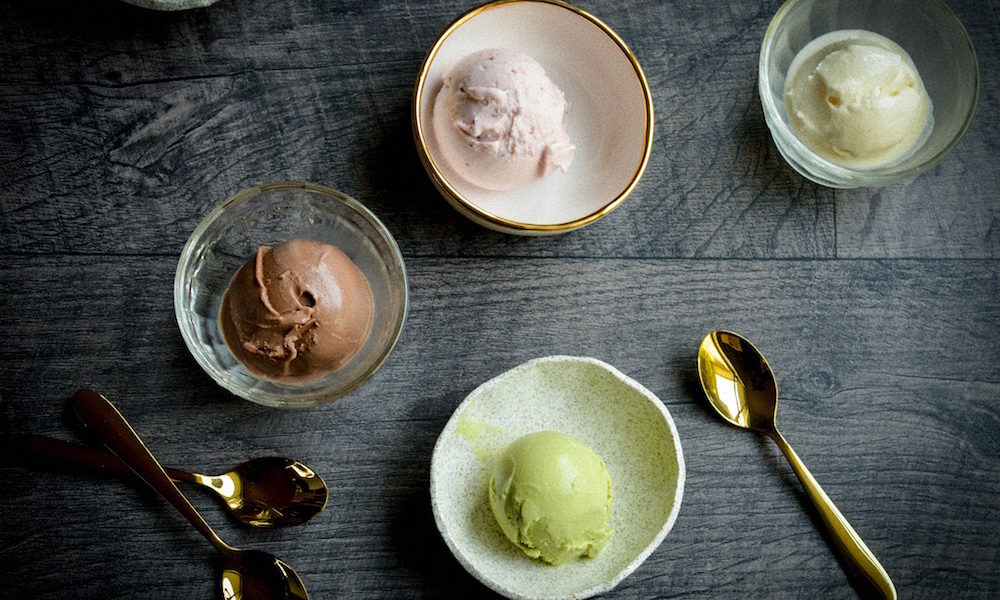To feel fulfilled in life, you must explore what gives you joy and satisfaction. Food is no different, and why it’s important to strike a balance that keeps you both physically and mentally healthy.
BY: VINCCI TSUI, RD
For some, the idea that food should be satisfying and pleasurable is a, “Well, duh.” type of statement. It might even seem silly that there are people out there who don’t want food to be satisfying, but it’s actually a very common belief when it comes to food and health.
For example, you’ve probably heard the phrase, “If it tastes good, it can’t be good for you.”
Desserts are often described as “decadent” or “sinful”, while lower calorie/fat/sugar versions are labeled “guilt-free”, as though the fact that there’s less somehow makes it better.
If you have a chronic condition, you’re expected to double down on these rules in the name of “health” and “self-care”. People with diabetes are told that they can’t have sugar or carbs, while people with high blood pressure are told that they can’t eat salt. Sure, there’s the “80/20 Rule”, but the message is clear:
It’s not about how you feel, it’s about sticking to the formula.
The idea that eating a certain way will improve your chronic condition makes sense in theory, but it’s actually a myopic view of food and health. Eating food is more complex than taking medication, and taking care of your health is so much more than managing your condition.
When you don’t take into account our needs for pleasure and satisfaction in eating, it’s actually a form of deprivation. And we all know what happens when we tell ourselves that we can’t have something.
We only want it more.
The sneaky thing with diet culture, however, is that when we inevitably eat what we truly crave, we don’t blame the deprivation and restriction. We blame ourselves for being “weak” or “lacking willpower”. As a result, we tell ourselves that we need more rules and more discipline, and we’re stuck going round and round in a diet-binge cycle instead of actually taking care of our health.
Despite being aware of the harms of deprivation, it can still be hard to wrap your head around the idea that you can manage your chronic condition while eating foods that are pleasurable and satisfying.
You might be thinking, “Maybe that would work if I craved vegetables, but all I ever crave is pizza and cake.” Or, “This might work if I was healthy, but my condition forces me to watch what I eat.”
First, let’s explore what “health” actually means to you.
What is the reason behind your health decisions? What are the values you hold that makes health so important to you? What happens if you’re ‘unhealthy’?
Next, it’s helpful to remember that eating is more than just satisfying your taste buds.
How do certain foods or meals feel in the rest of your body? Sure, cake is amazing, but if eating it all the time means that it messes with your blood sugar, triggers your chronic pain, or gives you an upset stomach, can we really say that it is truly satisfying?
This is a point where people often get tripped up with intuitive eating when they hear that it is possible to eat vegetables, drink water, and exercise without being on a diet.
You see, dieting doesn’t actually own these behaviors; the difference lies in the intention.
Are you choosing to do this because of self-care? Or because you’re trying to “be good” by following an external rule?
These questions are worth asking yourself so you have a better understanding of what you want out of your food experience and in life.
Ultimately, it’s important to remember that your health is a journey, not a destination. Stop focusing on weight or what you believe ‘perfection’ looks like, or the idea that there is a “right” way to eat. You’re not going to feel perfectly satisfied 100% of the time, just as you won’t be able to manage your chronic condition perfectly 100% of the time.
Rather, it’s about being open to exploring, making mistakes, and striking a balance that is uniquely your own.
Adapted from the original article.
HEADER IMAGE: MICHELLE TSANG
Vincci Tsui, RD is a former bariatric dietitian turned certified Intuitive Eating counselor and Health At Every Size(r) advocate. Based in Calgary, Canada, Vincci specializes in helping people untangle their messy relationships with food and their body, and works with individuals in-person and virtually through her private practice. Read more from Vincci at www.vinccitsui.com.

